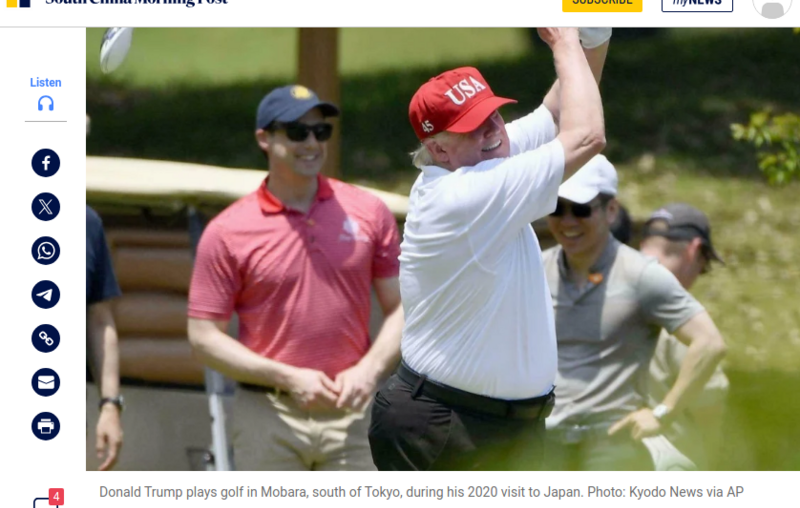by Kyodo at scmp.com
“I predict a lot of continuity, and the same things that motivated him when he was elected the first time, I think, continue to motivate him,” Alexander Gray, who was deputy assistant to the former president, said.
Referring to the decades-old US-Japan alliance, he said it is “beyond any one prime minister, any one president. It has such extraordinary strategic significance” to serve US interests and ensure stability in the Indo-Pacific region.
“My sense is he doesn’t have a preference. If you asked him that question, I don’t think he’d have a preference. I think his preference is for alliances that work, whether it’s US-Japan, or US-Japan-South Korea, or Nato or whatever it might be,” he said.
“If it’s effective, if it keeps the peace and if it serves US interests, I think the [former] president is all for it.”
In his view, the Biden administration has inherited the elevation of the US-Japan relationship from Trump’s era and cooperation of the two countries is set to deepen across various domains, ranging from defence to economic security, and extend its reach to Southeast Asia, the Middle East and beyond.
Asked about what may be the biggest foreign policy issue for a second Trump presidency, Gray, who helped to shape the previous administration’s approach to Asia, said, “China will continue to be probably the dominant focus.”
Gray, who was also chief of staff of the National Security Council, said China is “more malign than before” on the trade front “so I absolutely think there’s going to be a significant increase in tariffs, maybe as high as 60 per cent.”
He contended that the increasing alignment between Beijing and Moscow in an anti-American partnership is partially attributable to the shortcomings of the Biden administration.

